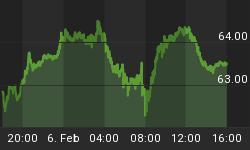The mainstream of economic thinking holds that China will continue to finance America's current account deficit indefinitely because American consumption is vital, if not critical, to the survival of China's export driven economy. While I have written several commentaries exposing the fallacy of this argument (most notably "Even Stephen Roach has it Wrong" available here), I thought one more analogy might be helpful.
During the Second World War, America's industrial might was concentrated on supplying the war effort. We had ten million men under arms spread across three continents, our ships patrolled the Atlantic and Pacific and our bombers blackened the skies. Factories that had previously produced passenger cars, sewing machines, and farm equipment had been retooled to make fighter planes, jeeps, tanks, rifles, bullets, artillery shells, destroyers, aircraft carriers, submarines, uniforms, helmets, boots, mess kits, and military radios.
At the time we were a very busy nation. Our factories were in operation 24/7, and more people than ever before were working, including legions of women previously absent from the workforce.
Given this full-throttled activity, economists of that time period may have argued that America should never have stormed the beaches at Normandy or Iwo Jima. After all, if the War ended, a disaster would befall America's wartime economy. Millions of soldiers and factory workers would lose their jobs and corporate profits would collapse as there would have been no more demand for all the weapons and military equipment they were producing. As victory abroad would surely bring recession at home, the war needed to be waged indefinitely.
As ridiculous as this argument sounds, it is exactly what most believe the Chinese should do today, as in reality their export driven economy is basically no different from America's wartime economy in 1944.
During the War, American consumers did not receive any direct economic benefit from their hard work and economic activity. In fact, they sacrificed greatly. Because factories were producing military goods, consumer goods were in short supply. In addition, scores of common staples, such as butter, nylons and gasoline, had to be rationed, so that they or the resources needed to produce them, would be readily available for the military. Similarly, Chinese citizens now produce export goods from which they themselves derive no direct economic benefit. In effect, consumer goods are rationed in China so as to make them readably available in America.
However, when World War II ended, American factories didn't shut down, they merely retuned to consumer goods production. Soldiers didn't lose their jobs; they merely put their labor to more productive uses. Instead of being wasted on a war (which unfortunately had to be fought), resources were applied to civilian purposes, leading to a post-war economic boom.
The same would apply in China today. As Americans once sacrificed to defeat the Nazis and Imperial Japan, the Chinese now sacrifice merely to support the purchasing power of Americans. If China allowed the dollar to decline against the yuan, American purchasing power would by definition be transferred to the Chinese. In China, factors of production would therefore be reallocated as they were during post-war America. Factories would retool and labor would seek more productive employment. Instead of wasting scarce resources producing goods to export, China would instead produce goods for domestic consumption.
The time has come for China, and the rest of Asia for that matter, to redirect its vast resources to raising the standard of living of its own people rather than to propping up the living standards of Americans. As soon as the Chinese stop producing goods for Americans they can finally begin producing more for themselves.
It's time for China to declare peace. Unfortunately, as Americans are the principal profiteers in China's war, we stand to lose the most when it ends. So while peace means China's days of sacrifice, rationing, and under-consumption will soon end, it means America's are about to begin.
Do not wait for China to end its foolish war. Protect your purchasing power before its too late. Discover the best way to buy gold at www.goldyoucanfold.com, download my free research report on the powerful case for investing in foreign equities available at www.researchreportone.com, and subscribe to my free, on-line investment newsletter at http://www.europac.net/newsletter/newsletter.asp.















